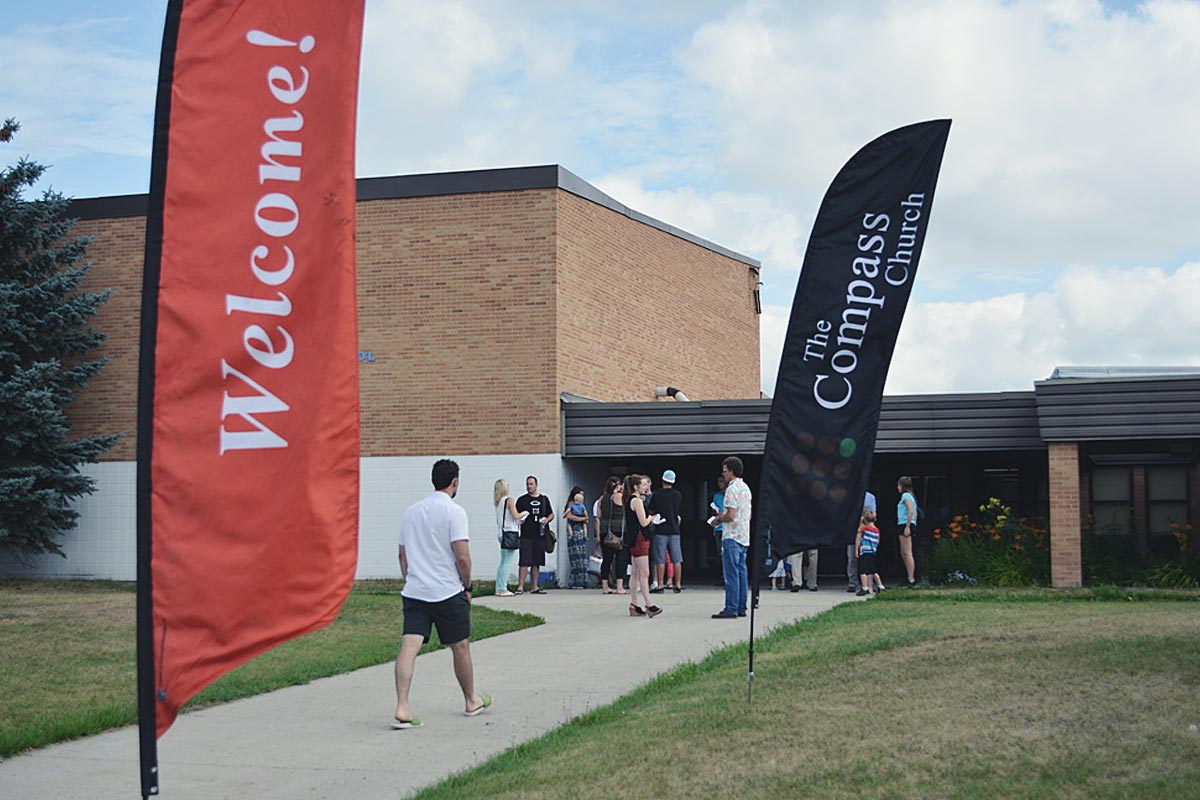A little over two years ago, we planted a church in the northwest area of Saskatchewan’s capital city, Regina. On the day of our launch, we experienced one of the worst things that could have happened: we tripled in size. Now before you go back and re-read that last sentence, let me reassure you that you read it right. We tripled in size and it was a bad thing.
As I stood up to preach that morning, seeing all these new faces, I was thinking my prayers had been answered and revival was breaking out in Regina. After the service, however, person after person shared with me everything that was wrong with the last church they had been spending an hour and a half on Sunday mornings with. As I heard the same thing over and over, my feelings of excitement began to fade.
When we first envisioned what our church would look like, our dream wasn’t for us to be a place for disgruntled Christians to go after leaving their existing churches. When we had initially planned, prayed, and dreamed, we understood that we were planting with the goal of reaching the lost in northwest Regina.
Regina didn’t need a new church that was only interested in taking other church members. All that would do is continue the horrible church culture of sheep-shuffling, which is unfortunately all too common in our city. No, Regina, as with all of Canada, needs churches that are committed to reaching people who are far from Jesus.
This reality in Regina reflects a greater reality across Canada. Regina is a city that over 250,000 people call home and yet the overwhelming majority don’t know Jesus. Across our nation, of the 36 million people who call Canada home, using the most generous estimates, only about 3.8 million people will gather with the church on a Sunday. The point being: We want to be about planting churches that equip people to reach wide. Not just reaching into existing churches, but into the lives of the 30-million-plus people from coast to coast who have no idea about Jesus’ life, death, and resurrection.
On the day of our launch, we experienced one of the worst things that could have happened: we tripled in size.
But as much as we desire to reach the unreached, the reality is that all of us are likely to experience transfer growth in our churches. A friend of mine describes church planting like a car crash. People will want to check out the carnage and most of them will be curious Christ-followers. Christians, for one reason or another, will leave their churches and find themselves joining you at your gatherings. Some will join you on your mission. They will give, they will serve, and they will show up on Sunday. And let’s be honest: that feels good. It feels like success. And if we’re not careful, the feeling of success can comfort us into a missional slumber to where we miss out on actually reaching the lost.
So how do we as church planters, as pastors, and as disciples sent out on mission actually reach the unreached? How do we keep a hunger for God’s mission alive in us and our churches and not just be content with transfer growth? I believe there are three things that will help us have an increased appetite for God’s mission.
1. Personal Engagement
Pastor, we are called to stay engaged and on mission plundering the enemy’s kingdom and seeing lives liberated from behind enemy lines (Matthew 16:17-19). If we aren’t passionately and personally involved in charging the gates of hell and going on the offence with the Gospel, we shouldn’t be surprised if our churches match our lack of engagement. The good thing is that the reverse is also likely true. When we as pastors are walking with people in our lives who are far from Christ: praying for them, sharing our lives with them, and proclaiming the goodness of God’s Kingdom in hopes that God would move in their lives, then we should no doubt see a church that also has a hunger and thirst for seeing people get to know Jesus. As we find ourselves engaged, we will most likely see others come along side us with prayers reflecting that of Charles Spurgeon, “Lord, hasten to bring in all Thine elect – and then elect some more.”
2. Define and celebrate the Wins
We like to say that “you are what you celebrate.” Think about that for a moment. What you celebrate as leaders and as a church will begin to shape the culture of the church for better or for worse. When you sit down with your team after a busy week, month, or year, what determines a win for your ministry?
I sat down recently with a good friend who shared with me how excited he was that his church was healthy. He went on to share that his church was growing, and attendance had been up over the past few months. But outside of people-in-the-seats, they had no other gauges to measure church health. They didn’t look at conversions, baptisms, or engagement in smaller groups. Nothing but attendance. Now, I think we would all agree that Sunday attendance is important, but to use that metric alone is not a great way to gauge success.
For us, one of the metrics we love to look at is baptisms. Baptism is an outward sign of the inward truth that one has been born again. That’s why baptisms are a big deal for us, and so we want to celebrate them by sharing the stories of people moving from death to life, and who are taking that next step of obedience in their faith. We want everyone to know that this is a huge win, and so we celebrate it. We party!
Planter, pastor, Christ-follower: we never move beyond the Gospel.
We also celebrate church planting, whether it’s our “mother-church” planting another church, or telling stories of other churches being planted in our partner networks like Acts 29. We pray for them and we send resources as a way of celebrating what God is doing through church planting because we believe that is a huge win for the Kingdom of God as the mission of God moves forward into places where Jesus is not yet known.
If you aren’t seeing your church engage the lost, maybe it’s time to evaluate how you define and celebrate the wins?
3. The Gospel
If we find ourselves lacking a desire to reach the unreached, we need to soak ourselves in the Gospel. Tim Keller has famously said that the Gospel is not just the A-B-C’s but the A-Z of Christianity. At the heart of the Gospel is a God who longs to reach the lost. Not because they deserve it, but simply out of love for them. That longing, and that desire is what leads to Jesus being sent on a mission to this earth to live, die, and rise again in our place so that we can enter into a right relationship with God, since that relationship was fractured through nature, when our first parents had sinned in the garden, as well as through our own choices, when we decide to live as our own gods.
The longer we soak in the Gospel, the more we become in awe of a God who would love us with such a radical and rich love, a love that we cannot even begin to comprehend. When we begin to see God’s love for us it will be like a match hitting gasoline. Our hearts will be reignited with fire for others to experience God’s love in the same way we have. Only the Gospel produces a sustainable passion and desire for the advancement of God’s mission across our cities, our provinces, and our nation. Only the Gospel can take a Christian that has otherwise missionally flat-lined and revive a heart that beats for the lost.
Planter, pastor, Christ-follower: we never move beyond the Gospel.
Every day, at 10:02 am, everyone in our office prays Luke 10:2, “The harvest is plentiful but the workers are few. Therefore pray earnestly to the Lord of the harvest to send out workers into his harvest.” We believe this. We believe that the harvest in Canada is plentiful. We believe that there are many in our nation who will be made alive by Jesus. So who is going to reach them? Will you go and bring the good news of the Gospel to them? Will you be committed as a church or as a future church plant to be workers in this harvest?








